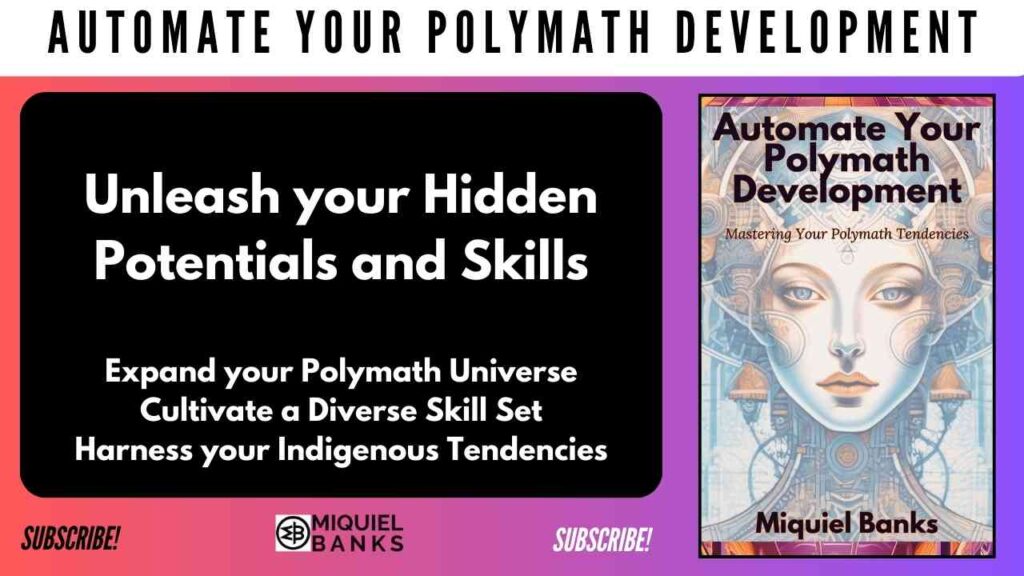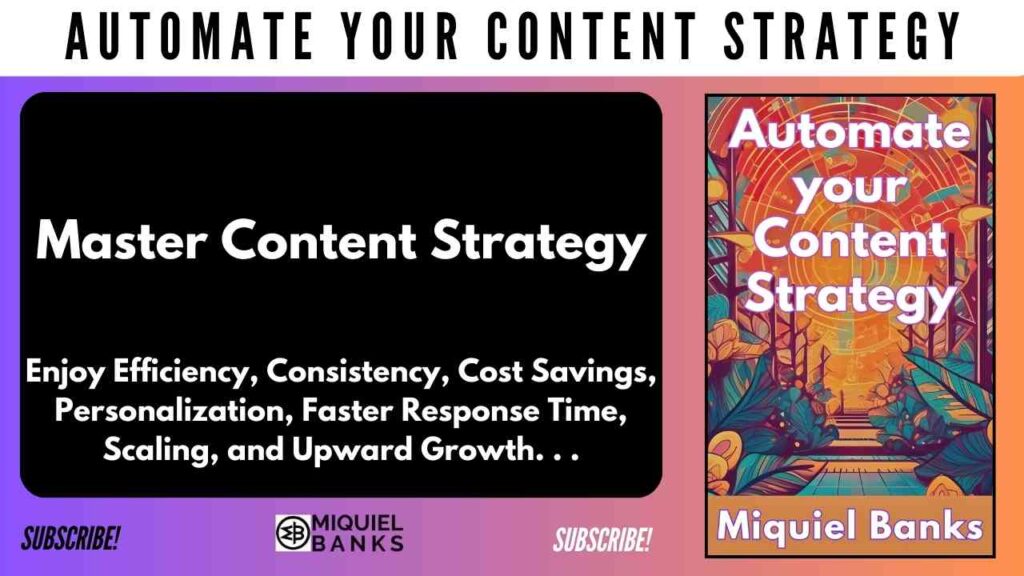Introduction
Polymath development, a concept rooted in the rich history of personal development, represents the ultimate evolution of human potential. Imagine a tapestry woven with threads of diverse knowledge and skills, each contributing to a harmonious and multifaceted mastery. From the Renaissance geniuses to modern-day innovators, the journey from being a jack of all trades to mastering many fields illustrates the limitless possibilities of polymath development. In this blog, we will delve into how personal development serves as the foundational building blocks for achieving polymathy, empowering you to embrace a holistic approach to learning and growth. Embark on this exploration to uncover the secrets of becoming a true polymath in today’s interconnected world.
The Rise of the Polymath
Historical Context of Polymaths
Throughout history, polymaths have emerged as the luminaries of their eras, their legacies enduring through the ages. The term “Renaissance man” often conjures images of figures like Leonardo da Vinci, whose diverse expertise spanned art, science, engineering, and anatomy. These individuals did not just excel in one field; they mastered many, embodying the spirit of polymath development. The concept traces back even further to ancient civilizations, where scholars in Greece and Rome were expected to be well-versed in multiple disciplines, from philosophy to mathematics. This historical context underscores the longstanding value placed on comprehensive personal development. By exploring the lives and achievements of historical polymaths, we gain insight into the timeless nature of human curiosity and the boundless potential of a well-rounded intellect.
The Renaissance Man Concept
The Renaissance Man concept epitomizes the essence of polymath development. Rooted in the cultural rebirth of the Renaissance period, this archetype celebrates individuals who excel in a wide array of fields. Figures like Leonardo da Vinci and Michelangelo are quintessential examples, demonstrating extraordinary talents in art, science, engineering, and literature. The Renaissance era, spanning the 14th to 17th centuries, emphasized the pursuit of knowledge across various domains, encouraging a holistic approach to personal development. This period’s ethos was driven by the belief that a well-rounded education cultivates a more complete and versatile individual. The Renaissance Man embodies the ideal of a polymath—someone who not only possesses a broad spectrum of knowledge but also applies it creatively and innovatively. This concept continues to inspire modern polymath development, encouraging us to transcend traditional boundaries and explore the interconnectedness of diverse disciplines.
Modern-Day Polymaths
Modern-day polymaths continue to redefine the boundaries of personal development by excelling in multiple fields. Figures like Elon Musk and Steve Jobs serve as contemporary examples, blending technology, business, and innovation to create groundbreaking advancements. Unlike their historical counterparts, today’s polymaths leverage the interconnected world and rapid technological advancements to accelerate their learning and impact. The digital age offers unprecedented access to information, allowing individuals to acquire diverse skill sets and integrate them in novel ways. From artificial intelligence to sustainable energy, modern polymaths are driving transformative change across various sectors. Their journeys underscore the importance of lifelong learning and adaptability in today’s fast-paced world. By embracing polymath development, we can aspire to cultivate a versatile and resilient mindset, empowering us to navigate and contribute meaningfully to the complexities of modern society.
Foundations of Personal Development
Importance of Personal Development
Personal development is the cornerstone of polymath development. It involves a deliberate focus on enhancing various aspects of oneself—intellectually, emotionally, and socially. By committing to personal growth, individuals lay the groundwork for mastering multiple disciplines. This continuous process of self-improvement not only broadens one’s knowledge base but also fosters critical soft skills like resilience, adaptability, and emotional intelligence. In today’s rapidly changing world, these traits are indispensable. Personal development also encourages a growth mindset, which is essential for embracing new challenges and learning opportunities. It empowers individuals to step out of their comfort zones and explore diverse fields, paving the way for polymathy. Ultimately, personal development fuels the pursuit of excellence across different domains, transforming the journey from being a jack of all trades to becoming a master of many.
Key Strategies for Growth
Effective personal development hinges on strategic planning and intentional actions. One key strategy is setting clear, achievable goals that align with long-term aspirations. These goals serve as navigational beacons, guiding your efforts and measuring progress. Another crucial tactic is adopting a growth mindset, which encourages viewing challenges as opportunities for learning rather than obstacles. Continuous learning is also vital; dedicating time to read, take courses, or attend workshops can significantly broaden your skill set. Furthermore, seeking mentorship can provide invaluable insights and guidance, helping to accelerate your development. Reflective practices, such as journaling or regular self-assessments, can help you stay attuned to your growth and make necessary adjustments. By implementing these strategies, you create a structured approach to personal development, laying a robust foundation for polymath development and ensuring sustained progress across multiple disciplines.
Overcoming Developmental Barriers
Overcoming developmental barriers is essential for effective personal growth and achieving polymath development. Common obstacles include time constraints, limited resources, and self-doubt. To navigate these challenges, it’s crucial to prioritize and manage your time efficiently. Break down your goals into smaller, manageable tasks and allocate specific time slots for focused learning. Leveraging free or low-cost resources, such as online courses, libraries, and community groups, can also mitigate resource limitations. Additionally, building a supportive network of like-minded individuals can offer encouragement and accountability. Addressing self-doubt involves cultivating self-compassion and resilience. Embrace failures as learning experiences and celebrate small victories to build confidence. Mindfulness practices, such as meditation, can also help maintain mental clarity and focus. By proactively addressing these barriers, you create a conducive environment for continuous personal development, paving the way for mastering multiple disciplines and becoming a true polymath.
Transitioning to Polymath Development
Integrating Diverse Skills
One of the hallmarks of polymath development is the ability to integrate diverse skills seamlessly. This integration transforms seemingly unrelated knowledge into a cohesive and powerful toolkit. Start by identifying the core competencies that align with your interests and goals. Then, look for intersections where these skills can complement each other. For instance, combining technical knowledge with creative problem-solving can lead to innovative solutions in technology and design. Cross-disciplinary projects and collaborations are also excellent ways to practice and refine this integration. Experimentation and curiosity play crucial roles; don’t be afraid to explore unconventional combinations of skills. Reflection is equally important—regularly assess how different skills enhance each other and contribute to your overall development. By continually seeking and creating connections between diverse fields, you cultivate a multifaceted expertise that defines true polymath development, enabling you to tackle complex challenges with a holistic and innovative approach.
Balancing Depth and Breadth
Balancing depth and breadth is a critical aspect of polymath development. While it’s essential to have a broad knowledge base across various disciplines, achieving true mastery requires delving deeply into specific areas. Start by identifying your primary areas of interest and expertise. Dedicate significant time and effort to gaining a deep understanding of these core fields. Simultaneously, allocate time to explore a wide range of subjects, allowing for a comprehensive view that can enhance your primary expertise. This balance can be facilitated through structured learning schedules and prioritizing tasks that align with your goals. Networking with experts from different fields can also offer diverse perspectives that enrich your understanding. Remember, the goal is not to become a superficial generalist but to cultivate a well-rounded skill set with deep expertise in select areas. This balanced approach enables you to contribute meaningfully across multiple domains, embodying the essence of polymath development.
Continuous Learning Techniques
Continuous learning is fundamental to polymath development. To maintain a trajectory of growth, adopt techniques that foster lifelong learning. Begin with a habit of daily learning—whether through reading books, online articles, or listening to podcasts. Microlearning, which involves consuming small, focused pieces of information, can be particularly effective in a busy schedule. Leveraging technology, such as educational apps and online courses, ensures access to a wealth of knowledge at your fingertips. Additionally, practice active learning by engaging with the material through discussions, teaching others, or applying new concepts in real-world scenarios. Networking with professionals from diverse fields can provide fresh insights and inspire further learning. Periodically reassess your learning goals and adapt your strategies to stay aligned with your evolving interests and the demands of the modern world. By integrating these techniques, you create a sustainable and dynamic learning ecosystem, essential for thriving as a polymath.
Benefits of Being a Polymath
Enhanced Problem-Solving Abilities
One of the significant benefits of polymath development is enhanced problem-solving abilities. Polymaths draw from a broad spectrum of knowledge and experiences to approach problems from multiple angles. This diverse perspective allows for creative and innovative solutions that specialists in a single field might overlook. By integrating insights from various disciplines, polymaths can identify patterns and connections that lead to more effective and holistic problem-solving strategies. For instance, understanding principles of design, psychology, and technology can enable a polymath to create user-centric solutions in product development. Additionally, the ability to adapt and apply different methodologies increases the flexibility and efficiency of addressing complex challenges. This multifaceted approach not only enhances individual problem-solving skills but also contributes to team dynamics by bringing diverse viewpoints to the table. Ultimately, the ability to tackle problems with a wide array of tools and perspectives is a key advantage of being a polymath.
Increased Adaptability
Increased adaptability is a significant advantage of polymath development. Polymaths, with their extensive knowledge across various fields, can swiftly pivot and adjust to new situations. This adaptability is crucial in today’s fast-paced and ever-changing world. By understanding diverse disciplines, polymaths can transfer skills and insights from one area to another, making them more resilient to disruptions. For instance, a polymath with expertise in both technology and business can seamlessly transition between technical roles and strategic positions, enhancing their versatility in the job market. Additionally, this adaptability fosters a proactive attitude towards learning new skills and embracing change. Polymaths are often more comfortable stepping out of their comfort zones, enabling them to tackle unfamiliar challenges with confidence. This ability to adapt not only benefits individual growth but also contributes to more dynamic and innovative teams and organizations, ultimately driving success in an unpredictable world.
Broader Career Opportunities
Broader career opportunities are a notable benefit of polymath development. Individuals who possess a wide range of skills and knowledge can explore various career paths and industries. This versatility allows polymaths to pivot between roles and sectors, making them highly valuable in the job market. For instance, a person with expertise in both data science and communication can excel in roles that require technical proficiency and the ability to convey complex information effectively. Employers often seek individuals who can bring diverse perspectives and skill sets to their teams, enhancing creativity and problem-solving capabilities. Additionally, polymaths are well-positioned to take on interdisciplinary roles that require a blend of different competencies, such as product management or innovation leadership. This breadth of career options not only increases job security but also provides more opportunities for personal and professional fulfillment, enabling polymaths to navigate and thrive in an ever-evolving job landscape.
Crafting Your Polymath Journey
Setting Clear Goals
Setting clear goals is a fundamental step in crafting your polymath journey. Clear, specific goals provide direction and motivation, ensuring that your efforts are focused and aligned with your aspirations. Start by identifying your long-term objectives—what fields do you want to master, and what impact do you wish to make? Break these overarching goals into smaller, actionable steps that can be achieved progressively. Use the SMART criteria—Specific, Measurable, Achievable, Relevant, and Time-bound—to refine your goals and make them more attainable. Regularly review and adjust your goals to stay on track and accommodate new interests or changes in circumstances. Additionally, setting both short-term and long-term goals helps maintain momentum and provides a sense of accomplishment as you achieve each milestone. Clear goals not only guide your learning journey but also enhance your ability to integrate diverse skills, ultimately facilitating your development as a polymath.
Building a Knowledge Network
Building a knowledge network is crucial for polymath development. A robust network of resources and connections can significantly enhance your learning and growth. Start by identifying reliable sources of information, such as academic journals, industry publications, and reputable online platforms. Joining professional organizations and online communities related to your areas of interest can provide access to expert insights and current trends. Networking with professionals from diverse fields can offer fresh perspectives and collaborative opportunities. Attend conferences, workshops, and seminars to expand your network and stay updated on advancements across different domains. Additionally, consider finding mentors who can provide guidance and support in your polymath journey. Engaging with a diverse knowledge network not only broadens your understanding but also helps you integrate and apply varied insights effectively. By actively building and maintaining a rich knowledge network, you create a dynamic ecosystem that fuels continuous learning and polymath development.
Staying Motivated and Inspired
Staying motivated and inspired is essential for sustaining your polymath journey. Begin by surrounding yourself with sources of inspiration, such as books, podcasts, and documentaries that highlight the achievements of renowned polymaths. Setting both short-term and long-term goals can provide a sense of direction and accomplishment, keeping you motivated as you progress. Celebrating small victories along the way reinforces positive behavior and keeps your enthusiasm high. Additionally, engage with communities of like-minded individuals who share your passion for learning and growth. Their support and shared experiences can be a powerful motivator. Reflecting on your progress regularly helps you recognize how far you’ve come and reignites your drive. Incorporating varied learning methods, such as hands-on projects or interdisciplinary collaborations, can also keep your journey exciting and dynamic. By actively seeking out motivation and inspiration, you maintain the momentum needed to thrive in your pursuit of polymath development.













